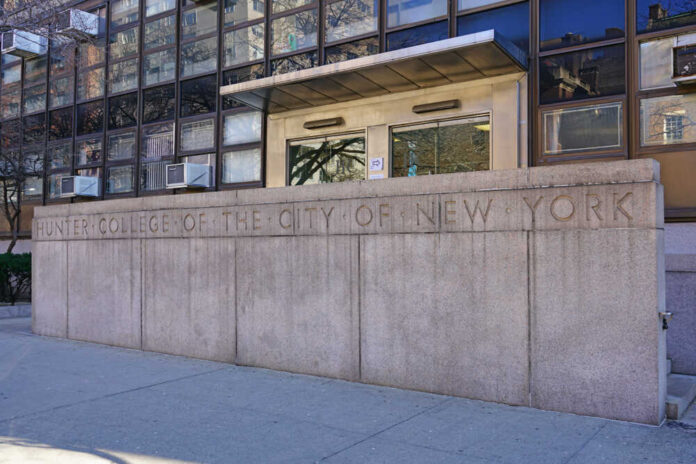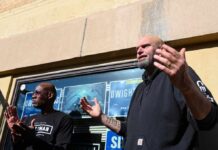
In a recent incident that took the internet by storm, a New York City professor’s actions have raised significant concerns about the state of our educational institutions and the broader culture they reflect. The professor, Shellyne Rodriguez, previously known for verbally assaulting pro-life students at Hunter College, took her aggression to an alarming level.
According to various reports, Rodriguez brandished a machete and threatened a reporter from the New York Post who had arrived at her door seeking comments about her behavior towards pro-life students. The high tension was captured on video and has since ignited a nationwide conversation.
JUST IN: Hunter College professor Shellyne Rodriguez held a machete to a New York Post reporter's neck after she was confronted for assaulting pro-life students at her college.
“Get the f–k away from my door, or I’m gonna chop you up with this machete!”
Rodriguez, who is open… pic.twitter.com/nvBgLztjni
— Collin Rugg (@CollinRugg) May 23, 2023
What stands out in this shocking display is the incident and the subsequent lack of appropriate legal action against Rodriguez. Despite her aggressive and threatening behavior, the main repercussions seem to be professional rather than legal. Vince DiMiceli, a spokesman for Hunter College, confirmed that “Rodriguez has been relieved of her duties at Hunter College effective immediately, and will not be returning to teach at the school.” While this step is necessary, it falls short of the legal repercussions one might expect following a violent threat.
In this era of increasing intolerance for differing viewpoints, one has to wonder how such incidents reflect on our society. This incident was not an isolated one. It occurred in an educational setting, involving a professor and young students who dared to express their pro-life opinions.
Shellyne Rodriguez, the @Hunter_College leftist adjunct art professor in NYC who was filmed attacking a pro-life student display, has been fired after threatening a New York Post reporter with a machete. She said she would chop him up. https://t.co/YRWuSa42p4
— Andy Ngô 🏳️🌈 (@MrAndyNgo) May 23, 2023
We can only hope that incidents like these serve as a wake-up call. We must encourage an environment where free speech is valued and differing viewpoints are respected rather than silenced by threats of violence. In addition, the consequences of such actions should be stringent enough to deter any further occurrences.
Moreover, this incident highlights the need for law enforcement to intervene swiftly when threats of violence are made, regardless of the status or occupation of the perpetrator. In this case, the reporter’s rights should have been equally respected and protected. His ordeal of having a machete held to his neck, followed by a street chase, should have resulted in legal action against Rodriguez.
This incident serves as a stark reminder that our society must do better. It’s not just about teaching tolerance in the classroom; it’s about modeling it in every sphere of our lives. We must strive to ensure that people feel safe expressing their views without fear of retribution or violence.
Rodriguez’s actions are a wake-up call, highlighting the deeper issues at stake. It’s not merely about one professor or one college. It’s about a broad cultural shift prioritizing respect, tolerance, and the sanctity of free speech.

































